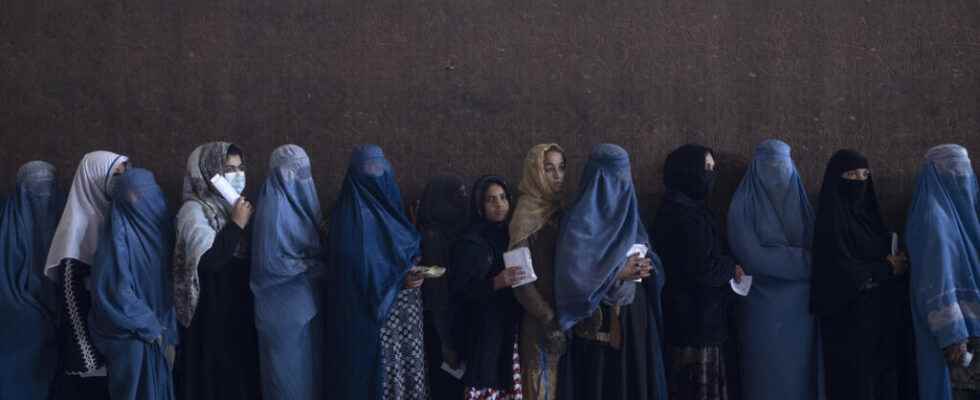At least three NGOs have partially resumed their missions in recent days, when it had been almost a month since they had ceased all activity in Afghanistan. These NGOs were protesting a Taliban decree that prohibited them from employing and working with Afghan women, but last week the Taliban backtracked, allowing the NGOs to return to the field.
In Afghanistan, NGOs provide essential aid in the country where more than half of the 38 million inhabitants are facing acute food insecurity, and where three million children are at risk of malnutrition. On December 24, the Afghan Ministry of Economy announced that NGOs were now prohibited from working with Afghan women, because of ” serious complaints as for non-compliance with the wearing of the hijab, which must fully cover the body and face.
After this ban, several NGOs, including the International Rescue Committee (IRC), Save the Children and Care, immediately announced the suspension of their activities in the country in protest. Some 1,260 NGOs operate in the country, according to the Ministry of the Economy, and employ several thousand women in essential positions, in food aid programs, in the fields of health or education.
The international community has repeatedly called on the Afghan government to reverse the ban on women, warning that it would have a heavy impact on the volume of aid provided to the country. Economy ministry spokesman Abdul Rahman Habib told AFP on Tuesday that women are essential in the health sector. And in recent days, some NGOs have resumed providing aid in some provinces with the support of their female staff, in the health and nutrition sector.
The necessary presence of women in the field
In Kabul, Melissa Cornet, humanitarian advocacy adviser, and the NGO Care were therefore able to return to the field: “ We were able to resume our health activities at the end of last week, which are now gradually resuming their entirety. The line of these NGOs has always been that we would not work without our female colleagues, quite simply for very pragmatic reasons. We cannot work if we do not have 30 to 40% of our colleagues and above all, we cannot have access to half the population of Afghanistan without our female colleagues, because Afghanistan being a very Conservative and patriarchal, it’s not a country where it’s appropriate for a man to go talk to a woman he doesn’t know. »
Not all processes to identify vulnerable women and children, for example to bring them aid, are possible with men, reminds this humanitarian advocacy adviser: “ So it is really urgent that we continue to work and find a solution very quickly with the authorities so that all women can return to work in all programs and not just in the health field. »
The next step, allowing women to work in other fields
Two aid workers also told AFP that discussions were continuing with the authorities to convince them to let women work in other areas, including education, access to water, public hygiene or food distribution. The authorities could decide to selectively open » from other sectors to women. A senior Taliban official, also speaking on condition of anonymity, told AFP that NGOs will have to justify why they need to employ women.
This prohibition for women to be employed by NGOs had followed by a few days that preventing them fromstudy at university. Despite promises to be more flexible, the Taliban have returned to interpretation ultra-rigorous of islam which marked their first diet – from 1996 to 2001 -.
Since their return to power in August 2021, they have imposed severe restrictions on Afghan women dismissing them from public employment, prohibiting them from attending secondary schools, or from going to parks, gymnasiums and public baths.
►To listen also: Afghanistan: universities are now forbidden to women
(and with AFP)
